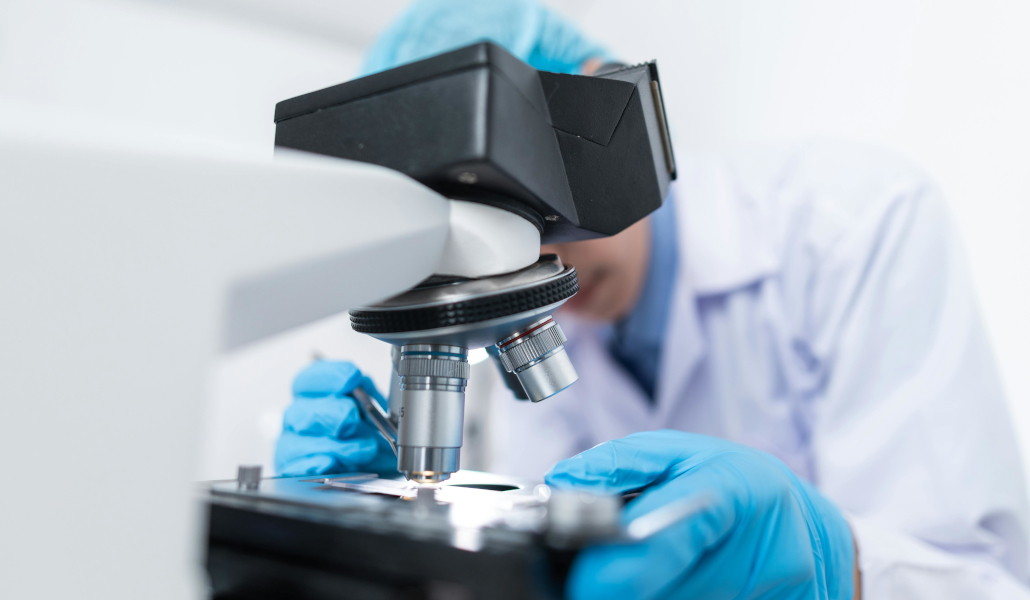Success Stories
Ushering in the Next Generation of Cell Therapies in Singapore



A pioneering collaboration between Elpis Biopharmaceuticals (Elpis) and Singapore General Hospital (SGH) is developing next-generation allogeneic armoured CAR-γδT (chimeric antigen receptor-gamma-delta-T) therapies for difficult-to-treat cancers.
Supported by the Biomedical Sciences Industry Partnership Office (BMSIPO), the partnership is a shining example of how Singapore’s integrated biomedical ecosystem enables cutting-edge research and translational breakthroughs that can benefit patients locally, across Asia and throughout the world.
Closing the chasm in cancer care
CAR T-cell therapies have removed the death sentence for certain blood cancers, offering durable remissions where conventional treatments have failed. However, their impact has been uneven. The approach remains expensive and complex, often limited to highly specialised cancers. For solid tumours and some blood cancers, responses have been limited and inconsistent, held back by tumour heterogeneity and the suppressive tumour microenvironment.
It is against this backdrop that Elpis and SGH joined forces. They have put their weight behind developing allogeneic armoured CAR-γδT therapies, which are ‘off-the-shelf’ treatments engineered from donor cells rather than a patient’s own. This innovation broadens accessibility and lowers cost, which in turn improves persistence and accelerates treatment delivery.
“Many patients have exhausted existing options and cannot wait. That is what pushes us to accelerate translation,” said Assistant Professor Alice Cheung, a Junior Principal Investigator at SGH’s Department of Haematology. “Combining our γδT platform with Elpis’ bispecific and armoured CAR technologies potentially enables us to create therapies that are both potent and scalable.”
Strength meets strength
SGH’s Department of Haematology had been searching for an industry partner with complementary CAR technology that could be paired with its γδT cell platform. Elpis, meanwhile, was advancing a pipeline of bispecific armoured CAR-T therapies, designed to overcome multiple resistance mechanisms in solid tumours and haematologic malignancies.
The research agreement, signed in January 2025, outlines technology transfer from Elpis to SGH, which will leverage its cord blood γδT cell and clinical expertise to advance the therapies into investigator-initiated trials for blood cancers. If the results prove favourable, the two parties have expressed interest in exploring a joint venture for further development and commercialisation.
“This collaboration reflects a shared purpose that brings together Elpis’ innovation on multi-mechanism armoured CAR technologies with SGH’s deep clinical insight and translational capacity,” said Lim Chee Yong, Co-Founder, Co-CEO and Chief Strategy Officer of Elpis. “Together, we’re building a platform that has the potential to deliver allogeneic therapies that are both potent, scalable and lower the treatment cost for patients with difficult-to-treat cancers.”
Singapore as an enabling hub
Elpis’ decision to relocate its headquarters from Boston to Singapore in late 2023 was a precursor to this collaboration. To Founder and CEO, Dr Yan Chen, MD PhD, the move was both strategic and personal. Having completed her PhD at the National University of Singapore, and with a maternal parentage from Singapore, she sees Singapore as a natural base from which to conduct global business. Political stability, regulatory maturity and a robust biomedical ecosystem reinforced the decision.
“Singapore is an ideal home for Elpis’ continued growth and global expansion. The scientific talent, clinical depth, and supportive infrastructure make it possible to advance our efforts to develop next-generation of immune cell therapies from concept to clinic,” said Dr Chen. “Our collaboration with SGH exemplifies how translational science can be accelerated when public and private institutions share a commitment to patient-focused innovation.”
BMSIPO played a key role in accelerating the partnership and navigating funding requirements for this joint project. BMSIPO initiated preliminary background checks on Elpis to help SGH evaluate credibility beyond the science as well as convening early meetings to align expectations and guided both parties through funding avenues. BMSIPO also connected Elpis with Enterprise Singapore to explore mechanisms supporting its market expansion.
“BMSIPO was instrumental in helping us manoeuvre through early discussions,” said Assistant Professor Cheung. “They ensured this was a win-win partnership, balancing the needs of a public hospital team and a biotech company new to the local landscape.”
Patient impact and regional reach
The collaboration could deliver therapies that reshape care for patients with cancers. Unlike autologous CAR-T therapies, which are tailored for individual patients and can take weeks to manufacture, allogeneic approaches promise greater accessibility at lower cost. These allogeneic products derived from healthy donors are more standardised and potentially more potent.
Additionally, the potential benefits could extend beyond Singapore. By building translational infrastructure locally, the partnership creates a sustainable model that can serve patients across Asia and beyond. Already, Elpis is broadening its footprint, with an MoU signed with the National Cancer Centre Singapore in July 2025 and discussions with Duke-NUS Medical School on potential collaborations.
“Innovative therapies are only meaningful if they reach patients in time and are persistent. By bringing together complementary strengths and Singapore’s ecosystem, we are working towards making Elpis’s ‘living drug’ vision possible,” said Lim.
A*STAR celebrates International Women's Day

From groundbreaking discoveries to cutting-edge research, our researchers are empowering the next generation of female science, technology, engineering and mathematics (STEM) leaders.
Get inspired by our #WomeninSTEM
